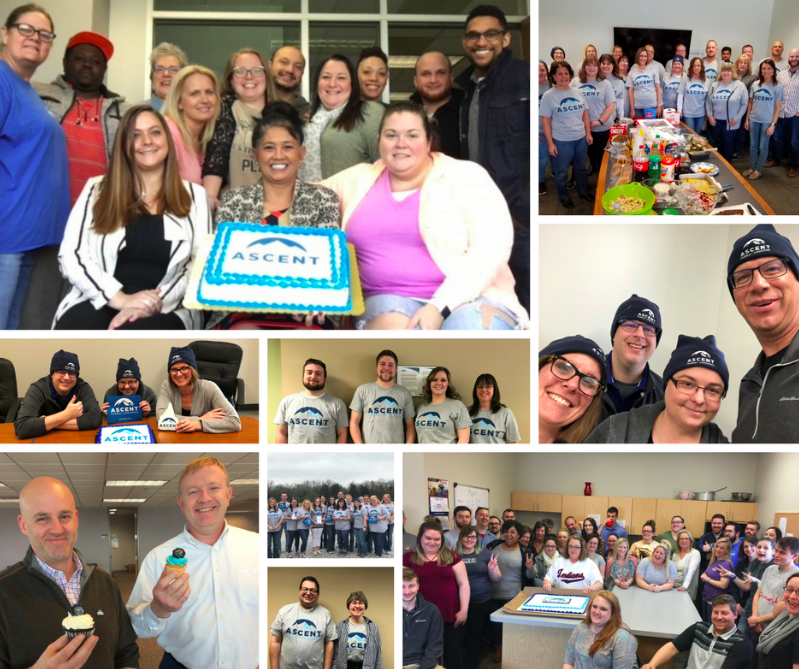
Written By: TMSA Staff | Aug 1, 2018 12:00:00 AM
Inbound Logistics, a TMSA Affiliate member and Media Friend, recently announced its annual G75 for 2018 — a carefully curated list of 75 companies that go above and beyond to ensure their global supply chains are sustainable, and their operations are socially and environmentally friendly. These companies, several that are TMSA members, have spent years developing and implementing best practices to ensure the footprint they leave on the world is a positive one. Congratulations to these TMSA member companies for their accomplishments that allowed them to make the list in 2018:
Averitt Express, since 2004 has lowered CO2 emissions by about 27 percent, reduced nitrogen oxide emissions by 50 percent, and cut particulate emissions by 52 percent.
CN's fleet uses 15-percent less fuel per gross ton mile overall than the industry average.
Celadon Trucking - Celadon earned the 2017 SmartWay Freight Carrier and Multimodal Excellence Award.
Crowley - Using the Clean Cargo Working Group platform, Crowley launched its first third-party verification of emissions data for customer assurance, receiving 100-percent verification of its international liner fleet's CO2 and SOx emissions.
CSX Transportation - has a three-pronged approach to sustainability: reduce the environmental footprint of operations, engage openly on sustainability issues, and support sustainability developments. In 2016, the company improved fuel efficiency by shutting down unused locomotive power whenever possible. The railroad is capable of moving one ton of freight 474 miles on a single gallon of fuel.
DHL Supply Chain – has set four interim sustainability targets to achieve by 2025. Global target: increase carbon efficiency by 50 percent compared to 2007. Local target: deliver 70 percent of its own first- and last-mile services with clean pickup/delivery solutions. Economic target: more than 50 percent of sales incorporate green solutions. People target: train 80 percent of employees as certified GoGreen specialists.
Dupre Logistics - their initiatives address fuel efficiency, safety, and environmental performance. Dupré's fleet contributes to green results with a top speed of 62 mph, and the use of fuel-efficient tires. Utilizing Omnitracs and Green Road technologies monitors safety and fuel economy.
FedEx - sustainability efforts include: managing its carbon footprint, establishing environmental policies and procedures for employees to follow, using natural resources to minimize waste generation, and establishing an EarthSmart program. By 2012, FedEx had increased its global electric vehicle and hybrid electric vehicle fleet to 482 vehicles, logging more than 14.8 million miles and saving 480,000 gallons of fuel.
Hub Group - LEED Gold-certified corporate headquarters features natural habitat landscaping, energy-efficient lighting, electric vehicle charging stations, and rainwater harvesting. A continuing initiative aims at reducing idle hours. Hub Group continues to educate, develop, and implement intermodal conversions in its customers' supply chains, resulting in savings of 3 billion plus pounds of CO2 in 2017.
Jaxport - From designing cargo terminals and using innovative technologies, to purchasing new equipment, JAXPORT is committed to environmental protection. Among the port's efforts to preserve the region's natural environment are championing the use of cleaner, alternative fuels, reducing engine emissions from port equipment, and recycling oil used in cranes.
J.B. Hunt - In 2017, J.B. Hunt reduced carbon emissions equivalent to removing more than 700,000 passenger vehicles off the road for one year.
Kenco - commits to the environment by employing a full-time leader of sustainability to drive initiatives. The company aims to assist its customers in achieving environmental responsibility. Initiatives include: using hybrid automobiles in the company fleet, reducing paper and paper waste with technology, and using auxiliary power units to reduce idle time and fuel consumption.
Knight – Swift Transportation - more than 4,200 tractors operate with U.S. EPA2010 or newer engines. Technology related to these engines has effectively reduced the two primary emissions of the diesel engine—NOx and particulate matter—by 99 percent.
Lynden - the first Alaska-based transportation company to be recognized by SmartWay and the first trucking company to earn the Green Star Award for Alaskan businesses. Despite operating in steep terrain and extreme conditions, Lynden's fleets consistently score among the most efficient in terms of CO2 per ton mile as measured by the SmartWay Transport Partnership. Facility upgrades have saved 3,535 MWh of electricity and 4.5 million BTUs of heating fuel/natural gas annually. This equals the average energy used in 335 homes or 403 passenger vehicles each year.
PITT OHIO - looks to see how it can do business differently by partnering with customers, vendors, and community members. The company has uncovered innovations in renewable energy over the past two years, and has installed eight wind turbines and 700 solar panels in its new Cleveland facility. Its long-term goal is to generate enough power to charge electric trucks. In 2017, PITT OHIO reduced overall electricity kWh by 6 percent, and specifically at its Pittsburgh facility, reduced consumption by 25 percent through implementing its DC powered, renewable energy micro-grid.
Port of Long Beach - Guided by its award-winning Green Port Policy, the port is reducing harmful air emissions from port-related operations, improving water quality in the harbor, protecting marine wildlife, and implementing environmentally sustainable practices. The Port of Long Beach notched clean air records in its latest study of air pollution emissions, including an 88-percent reduction in diesel particulate matter.
Ruan Transportation Management Systems - Three-time SmartWay Excellence Award winner Ruan utilizes lightweight trucks and trailers, proven aerodynamic solutions, auto-inflation tire systems, onboard monitoring, and auto-shift power units. Ruan also partners with and contributes to the Clean Cities annual study on diesel reduction. The company is one of only three for-hire fleets in the National Clean Fleets Partnership. Ruan has run nearly 90 million miles on natural gas power since 2011, including 55 million miles using renewable natural gas from biodigested cattle manure.
The Shippers Group - The Shippers Group provides a one-stop third-party logistics, packaging and transportation solution to clients who rather focus on selling and manufacturing their products. Services include warehousing, packaging, e-commerce, and transportation.
YRC Worldwide - Since the beginning of 2015, YRC has replaced 20 percent of its approximately 14,000 tractors and 15 percent of its approximately 44,000 trailers. About 70 percent of line-haul vehicles will be three years old or newer by mid-2018. All 53-foot and 28-foot trailers entering the fleet are equipped with aerodynamic skirts and fuel-efficient tires. And, YRC caps speed below 65 mph on all units, which reduces fuel consumption and emissions.
Tags:

Mergers, acquisitions, and business integrations - these are all strategic moves many players in transportation and logistics are incorporating into their own strategic direction. And with this comes...

What are the best ways to work with editors, publishers, and reporters to achieve publicity that will beat the averages? 1. Develop and cultivate your company’s subject matter experts. Get to know...